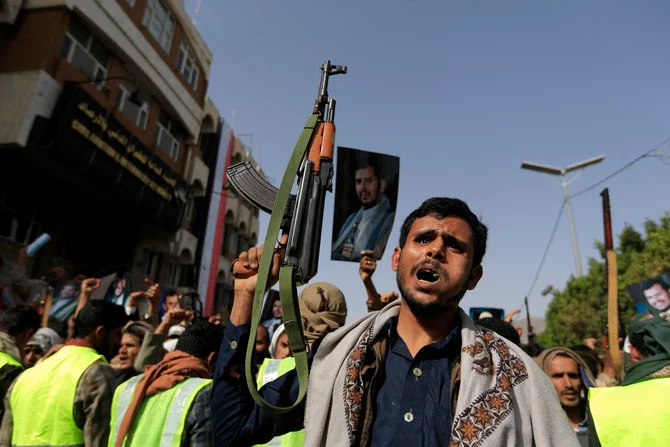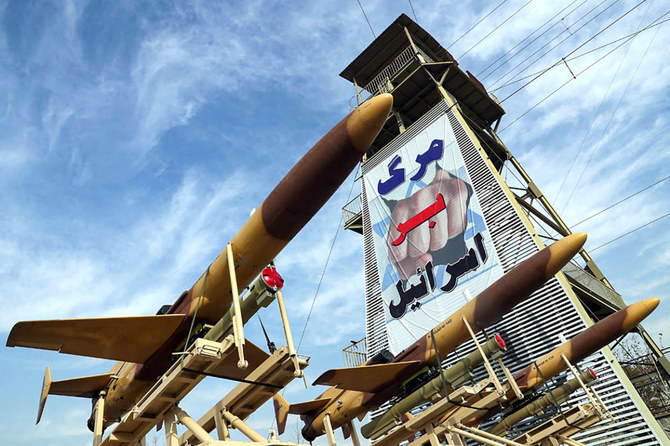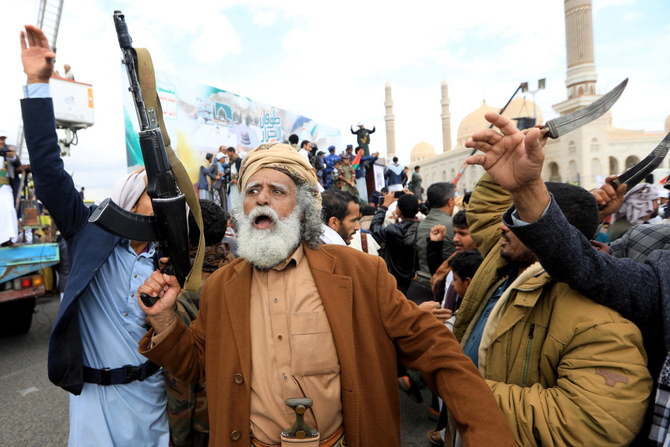AL-MUKALLA: Iranian interference in Yemen started immediately after exiled Ayatollah Khomeini’s 1979 return to Tehran, the Yemeni leader has revealed.
And Rashad Al-Alimi, president of Yemen’s Presidential Leadership Council, told Al Arabiya TV on Monday that in 1983 Iran’s government gave its backing to an armed group commanded by Badder Addin Al-Houthi, the father of the Houthi movement’s leader.
In an exclusive interview with the station, Al-Alimi said that year the militia, led by Al-Houthi and Salah Faletah, father of the Houthis chief negotiator, had attacked civilian and military targets in Sanaa.
“It should be evident to everybody that the Iranian project was conceived by an early strategic plan and not in 2000 or 2004. After Khomeini’s return and the launch of Iran’s regional expansion strategy, the problem arose.
“The emergence of Iranian cells in Yemen coincided with the emergence of Hezbollah in Lebanon,” the president added.
He pointed out that many Yemeni governments had over the past four decades tried to alert the international community to the gravity of the situation, particularly during conflicts between 2004 and 2010.
Al-Alimi noted that the internationally recognized government and the council were dedicated to upholding a UN-brokered cease-fire, which ended in October, and other peace initiatives to end the war, despite constant Houthi breaches that since April had left hundreds of government military personnel dead or injured.
“The terrorist Houthi militia has refused to extend the cease-fire and open roads in Taiz until this day,” he said.
In October, the National Defense Council, chaired by Al-Alimi, labeled the Houthis a terrorist group after they attacked oil terminals in the southern provinces of Hadramout and Shabwa, resulting in the closure of key facilities and the cessation of oil exports, the government’s primary source of income.
As a result of the attacks, the Yemeni government may be unable to pay the wages of thousands of government employees, and damage repair costs to the Hadramout facility have been estimated at $50 million, he added.
Al-Alimi said: “We urge the international community to proceed from condemnation to action by classifying this terrorist group as a terrorist organization. It is affiliated with terrorist groups like the (Iran’s Islamic) Revolutionary Guard (Corps) and Hezbollah.”
He accused the Houthis of collaborating with terror groups, including Daesh and Al-Qaeda, by freeing militants, including some Al-Qaeda operatives jailed for their involvement in the 2000 attack on the USS Cole destroyer, arming them, and then sending them to liberated areas to launch attacks against government troops.
The eight-member Presidential Leadership Council, which took office in April when former president Abed Rabbo Mansour Hadi delegated his power to the council, is made up of important military and political figures as well as the governors of several provinces.
Al-Alimi, who is now in Riyadh, refuted media claims of divisions within the council and said that he and other council members often met online and would return to Aden.
On the council’s accomplishments, he highlighted its work in revitalizing courts and other public bodies and routinely paying public employees in all government-controlled regions.
“Today, all freed territories have fully operational courts, prosecution, and judicial institutions,” he added.
And on Yemen’s relationship with the Arab coalition, primarily Saudi Arabia and the UAE, Al-Alimi said the Kingdom hosted more than 2 million Yemenis who sent at least $4 billion annually to their families in Yemen, while Saudi Arabia also funded numerous projects such as the renovation of a hospital in Aden.
In addition, the UAE was involved in the building of a 120-megawatt solar power plant in Aden.
“The strategic relationship between us and the Kingdom derives from the Yemeni people’s interests, but the Houthis gave Iran’s interests priority over those of the Yemeni people,” he added.






















